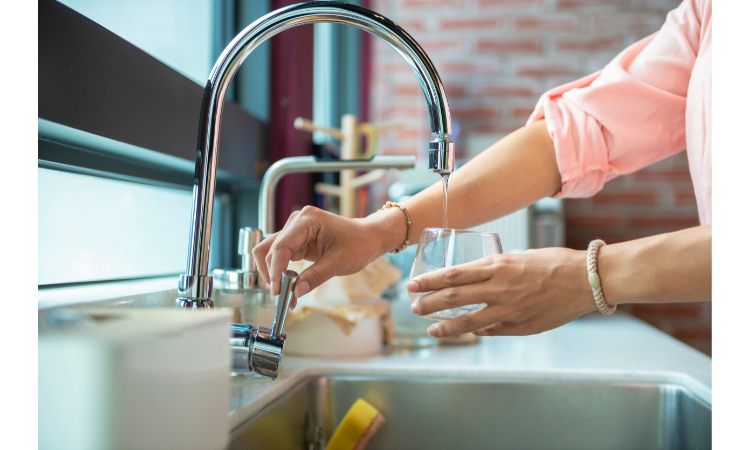Drinking water is essential for human survival. However, why normal drinking water is not enough to hydrate the body is a question that has puzzled many. This article will explore the reasons behind this conundrum, what not drinking enough water does to your body, and provide solutions to ensure you stay properly hydrated.
The Importance of Hydration

Before diving into the intricacies of hydration, it’s important to understand the role water plays in our bodies. Around 60% of the human body is composed of water, and it is vital for the following functions:
- Temperature regulation: Water helps maintain the body’s temperature by absorbing and releasing heat.
- Waste elimination: Water aids in flushing out waste and toxins from the body through urine and sweat.
- Joint lubrication: Water keeps our joints lubricated, reducing friction and preventing joint pain.
- Digestion and absorption: Water is crucial for breaking down food and absorbing nutrients.
With these crucial roles in mind, let’s discuss why not drinking water is bad and why normal drinking water might not be sufficient for optimal hydration.
Why Normal Drinking Water Is Not Enough
-
Lack of Electrolytes

One of the main reasons normal drinking water may not be sufficient to hydrate the body is the lack of essential electrolytes. Electrolytes are minerals, such as sodium, potassium, and magnesium, that carry an electric charge. They are crucial for maintaining the body’s fluid balance and ensuring proper muscle and nerve function.
When you sweat or become dehydrated, your body loses electrolytes along with water. Drinking plain water can dilute the remaining electrolytes in your body, leading to a condition called hyponatremia. This can cause symptoms such as nausea, headache, confusion, seizures, and even coma in severe cases.
-
Rapid Gastric Emptying
Another reason why normal drinking water may not be enough to hydrate the body is its rapid gastric emptying rate. This means that water can pass through the stomach quickly, potentially limiting the amount of time it has to be absorbed by the intestines. Drinking large amounts of water in a short period may lead to inadequate hydration, as the body cannot absorb water efficiently.
-
Individual Needs and Lifestyle Factors
Lastly, individual needs and lifestyle factors can influence the amount of water required for proper hydration. Athletes, pregnant or breastfeeding women, people living in hot climates, or those with certain medical conditions may require more water than what is typically recommended.
What Not Drinking Enough Water Does to Your Body

Not drinking enough water can lead to dehydration, which in turn can cause a variety of health problems. Some of the consequences of dehydration include:
- Fatigue: Dehydration can cause a decrease in blood volume, which in turn may lead to decreased oxygen and nutrient delivery to cells, resulting in fatigue.
- Cognitive impairments: Dehydration can impair mental function, leading to difficulty concentrating, short-term memory problems, and mood swings.
- Kidney problems: Chronic dehydration can increase the risk of kidney stones and urinary tract infections.
- Constipation: Insufficient water intake can lead to constipation, as the body reabsorbs more water from the colon to compensate for the lack of hydration.
- Skin issues: Dehydration can cause the skin to become dry, flaky, and more prone to wrinkles.
Given the adverse effects of dehydration, it’s essential to understand why not drinking enough water is bad and find ways to ensure proper hydration for overall health and well-being.
How to Stay Properly Hydrated
Now that we’ve established the importance of hydration and the limitations of normal drinking water, let’s discuss some practical ways to stay hydrated:
-
Consume Electrolyte-Rich Drinks

To combat the lack of electrolytes in normal drinking water, consider incorporating electrolyte-rich drinks into your hydration routine. Sports drinks, coconut water, and electrolyte-enhanced water can help replenish the electrolytes lost through sweat and other bodily processes.
-
Eat Hydrating Foods

Hydrating foods, such as fruits and vegetables, can contribute significantly to your daily water intake. Some examples of water-rich foods include:
- Watermelon
- Cucumber
- Strawberries
- Celery
- Lettuce
Including these in your diet can help you stay hydrated, especially if you struggle with drinking enough water.
-
Drink Water Throughout the Day
Rather than drinking large amounts of water in a short period, aim to sip water consistently throughout the day. This can help maintain optimal hydration levels without overwhelming your body’s ability to absorb and process the water.
-
Monitor Your Body’s Hydration Cues
Pay attention to your body’s signals for hydration, such as thirst, dry mouth, and urine color. A well-hydrated person should have pale yellow urine, while darker urine may indicate dehydration.
-
Adjust Your Water Intake Based on Your Needs
As mentioned earlier, individual needs and lifestyle factors can affect the amount of water required for proper hydration. Be mindful of your body’s unique needs and adjust your water intake accordingly. For example, if you engage in high-intensity exercise, live in a hot climate, or have specific medical conditions, you may need to consume more water than the general recommendation.
Conclusion

While normal drinking water is essential for our survival, it might not be enough to keep our bodies optimally hydrated. Understanding the limitations of regular drinking water, such as its lack of electrolytes and rapid gastric emptying, can help you take proactive steps to ensure proper hydration. By incorporating electrolyte-rich drinks, consuming hydrating foods, and monitoring your body’s hydration cues, you can maintain a healthy balance and ward off the negative consequences of dehydration. Remember, staying hydrated is crucial for maintaining overall health and well-being, so never underestimate the power of water.
